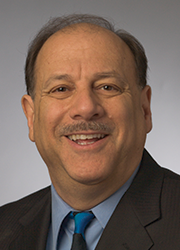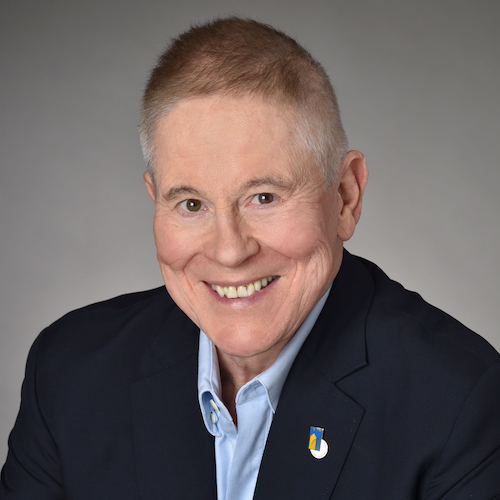30 September 2009
Click here for the latest articles on ADA Compliance and Defense.
Americans with Disabilities (ADA) update. Why you need to take advantage of the “Certified Access Specialists program” (CASp)! Much needed new protection for property owners against ADA litigation even as California Supreme Court decision opens door to more ADA claims.
ADA Lawyer update. Worried about ADA claims? If not, you should be! There is a flood of private claims driven by evangelistic “true believers” and blackmail artists. The real tsunami is still coming. The government itself is initiating nationwide enforcement “sweeps” against hotels, and the California Supreme Court is making it more profitable and easier than ever to file ADA claims.
What can YOU do? Finally, there is something you can do to shield yourself against this ADA litigation threat in California. The CASp program is cost-effective and invaluable protection. Don’t wait until it is too late!
But how do I deal with ADA issues in times of financial distress like these?
You simply can’t afford not to do it! Even in these days of desperate expense slashing, owners and lenders cannot afford to overlook critical ADA compliance for hotels, restaurants, and other public places. ADA violations make bad headlines and are far costlier to defend or “fix” than to prevent. (See our rich library of ADA articles at https://hotellaw.jmbm.com/ada/).
The government focus on enforcing the ADA standards is symbolized by the recent, high-profile U.S. Department of Justice’s ADA “sweeps” of many Manhattan hotels. More sweeps are expected nationwide in the coming months. ADA Sweeps by U.S. Department of Justice . . . How to get ready before it’s too late.
More importantly, the cost of preventing a potential disaster is so small, the process is so easy, the exposure so great, and the benefits so significant, that you simply cannot afford to overlook it. It should command one of the highest budget priorities on your list.
WARNING TO OPERATORS: It may be gross negligence to miss this protection.
ADA Lawyer Update: California Supreme Court decision likely to fuel increased ADA litigation, but the Certified Access Specialists program (CASp) offers some protection
A step backward
In a decision that is likely to lead to more lawsuits filed under the Americans with Disabilities Act (ADA) and California’s disabled access laws, the California Supreme Court unanimously ruled on June 12, 2009 that plaintiffs do not have to prove “intentional discrimination” to recover the $4,000 minimum statutory damages provided, per occurrence, under California’s Unruh Civil Rights Act.
Background
The case, Munson v. Del Taco, Inc., stemmed from two seemingly inconsistent rulings in California on whether an ADA plaintiff must plead and prove “intentional discrimination” to recover the $4,000 minimum statutory damages under the Unruh Act, or — without such pleading and proof — they could recover only $1,000, under California’s Disabled Person Act (DPA). While these figures don’t sound too alarming, remember that many plaintiffs allege numerous occurrences of discrimination at one property, and claim damages for each occurrence.
The federal ADA prohibits businesses from denying disabled individuals equal access to any public facilities. Similarly, California’s Unruh Act and DPA bar public businesses from discrimination based on disability, (among other classifications). Here’s the difference: while the Unruh Act allows plaintiffs to collect actual damages (a minimum of $4,000 in statutory damages without sustaining any physical injury), the DPA allows only $1,000 minimum statutory damages per occurrence, and the ADA does not afford any monetary amount to private plaintiffs.
In 2004, The Ninth Circuit Court of Appeals in Lentini v California Center for the Arts ruled that ADA violations, whether or not they involved intentional discrimination, would qualify for damages under the Unruh Act. However, the 2006 California state appellate decision, Gunther v. Lin, asserted that the Lentini decision was incorrectly decided and that ADA plaintiffs must plead and prove intentional discrimination in order to recover the $4,000 minimum statutory damages for each and every offense under the Unruh Act. In light of the conflict between the state and federal courts, the Ninth Circuit Court of Appeals petitioned the California Supreme Court to interpret the standard for imposing Unruh Act minimum statutory damages. Munson v. Del Taco, Inc. resolves the inconsistent rulings of Lentini and Gunther by concluding that Lentini’s interpretation was right–that a plaintiff “need not prove intentional discrimination in order to obtain damages.” While the decision provides clarity, it could be troublesome for some California businesses, including hotel owners and operators.
Now, the good news
If there is a silver lining in the California Supreme Court’s decision, it is that recent legislative changes under California SB1608, now part of California’s Civil Code, were designed to curb abusive ADA litigation. Under SB1608, pure “testers” cannot recover damages simply because they identified technical access barriers that had no genuine impact on their full enjoyment of a business, (such as a hotel). The new law also creates a procedure for business owners to “certify” that their facilities meet state and federal accessibility standards.
The Certified Access Specialists program (CASp) certifies State of California experts in the field of ADA compliance and can offer certain litigation safeguards. Business owners that have initiated CASp certification have the option to stay or stop all ADA litigation and proceed to mediation. The primary benefit of staying litigation is to avoid expensive discovery and other proceedings which drive up legal fees. (This process generally has been in effect for ADA cases in the Northern and Southern District federal courts for years, and it is now available in other state and federal California courts.) To avail oneself of this stay, a hotel owner must file a motion to stay within 30 days of being served with the summons and complaint. An Early Evaluation Conference is to be set within 50 days from filing the request.
Under the Civil Code, a plaintiff can only recover damages against a CASp-certified property for violations actually encountered or violations which deterred the plaintiff from visiting the business on a particular occasion. Reasonable settlement offers by business owners, if rejected, are to be considered in determining any attorneys fees to be awarded the plaintiff.
Participating in the CASp program does not solve all problems with abusive ADA litigation but it is an important new step in that direction. As a practical matter, it is unlikely that plaintiffs or their attorneys will commence ADA litigation against a business knowing it is certified by the State of California as being compliant.
What to do now
Our ADA attorneys have been actively involved in developing the CASp program. As part of our commitment to helping our hospitality clients avoid the pitfalls of ADA litigation, we can advise you as to how your California properties can benefit from CASp and help guide you through the CASp certification process.
Hotel lawyers with JMBM’s Global Hospitality Group®, including Marty Orlick and Jim Abrams, have significant experience in setting up ADA compliance programs designed to minimize potential problems on new construction, rehab, and in the repositioning and sale of properties. Our team has also defended more than 300 hundred ADA lawsuits, many of them involving hotels, restaurants and other hospitality facilities. For any legal issue concerning your hospitality business, you can call on me and I will put you in touch with the right expert on our team.
Other ADA defense and compliance resources
You can access the full library of ADA materials on Hotel Law Blog by going to the home page, selecting the tab at the top that says “HOTEL LAW TOPICS”, and then clicking on “ADA Defense & Compliance” in the drop down menu . . . or by clicking here.
Below is a partial listing of articles by JMBM’s ADA Defense Lawyer team:
The ADA Compliance and Defense Guide — Free Download
ADA Defense Lawyer: New ADA standards for website accessibility
Starwood Hotels and The Phoenician get an expensive (and unnecessary) lesson in ADA compliance.
DOJ sues 3 of NYC’s top Zagat-rated restaurants for ADA violations
Charles Schwab settles claim over website accessibility
A blast against frivolous, serial ADA lawsuits in striking the right balance
New ADA compliance standards for golf courses. What do they mean to you?
How to handle an ADA lawsuit . . . and How not to do it
How a recent ADA case affects all hotels but particularly conference centers and meeting hotels
Defending ADA lawsuits. How your hotel website can make you a target for ADA lawsuits
 Martin H. Orlick is one of the top ADA defense lawyers in the country. He has helped hotel, restaurant, retail and other commercial property owners defend more than 500 ADA cases. In addition to defending lawsuits and governmental investigations, Marty’s team of ADA specialists focuses on enterprise-wide ADA compliance and litigation prevention, including facilities, website and operational compliance. He is also is a senior member of the law firm’s Global Hospitality Group®, a partner in the real estate department, and a member of the American College of Real Estate Lawyers (ACREL). For more information about ADA compliance and defense, contact Marty Orlick at 415.984.9667 or morlick@jmbm.com.
Martin H. Orlick is one of the top ADA defense lawyers in the country. He has helped hotel, restaurant, retail and other commercial property owners defend more than 500 ADA cases. In addition to defending lawsuits and governmental investigations, Marty’s team of ADA specialists focuses on enterprise-wide ADA compliance and litigation prevention, including facilities, website and operational compliance. He is also is a senior member of the law firm’s Global Hospitality Group®, a partner in the real estate department, and a member of the American College of Real Estate Lawyers (ACREL). For more information about ADA compliance and defense, contact Marty Orlick at 415.984.9667 or morlick@jmbm.com. Jim Butler is a founding partner of JMBM, and the founder and chairman of JMBM’s Global Hospitality Group® and Chinese Investment Group®. He is recognized as one of the top hotel lawyers in the world and has authored or co-authored The HMA & Franchise Agreement Handbook, How to Buy a Hotel Handbook, The ADA Compliance and Defense Guide, and The Lenders Handbook. Jim has led the Global Hospitality Group® in more than $87 billion of hotel transactional experience, involving more than 3,900 hotel properties located around the globe. Jim’s team has worked on more than 60 EB-5 projects over the past three years. 310.201-3526 or jbutler@jmbm.com
Jim Butler is a founding partner of JMBM, and the founder and chairman of JMBM’s Global Hospitality Group® and Chinese Investment Group®. He is recognized as one of the top hotel lawyers in the world and has authored or co-authored The HMA & Franchise Agreement Handbook, How to Buy a Hotel Handbook, The ADA Compliance and Defense Guide, and The Lenders Handbook. Jim has led the Global Hospitality Group® in more than $87 billion of hotel transactional experience, involving more than 3,900 hotel properties located around the globe. Jim’s team has worked on more than 60 EB-5 projects over the past three years. 310.201-3526 or jbutler@jmbm.comThis is Jim Butler, author of www.HotelLawBlog.com and hotel lawyer, signing off. We’ve done more than $87 billion of hotel transactions and have developed innovative solutions to unlock value from hotels. Who’s your hotel lawyer?
Our Perspective. We represent hotel owners, developers and investors. We have helped our clients find business and legal solutions for more than $125 billion of hotel transactions, involving more than 4,700 properties all over the world. For more information, please contact Jim Butler at jbutler@jmbm.com or +1 (310) 201-3526.
Jim Butler is a founding partner of JMBM, and Chairman of its Global Hospitality Group® and Chinese Investment Group®. Jim is one of the top hospitality attorneys in the world. GOOGLE “hotel lawyer” and you will see why. Jim and his team are more than “just” great hotel lawyers. They are also hospitality consultants and business advisors. They are deal makers. They can help find the right operator or capital provider. They know who to call and how to reach them.



